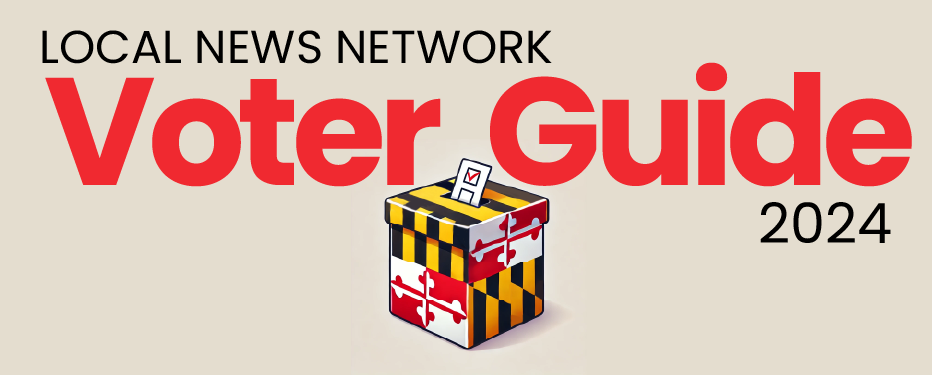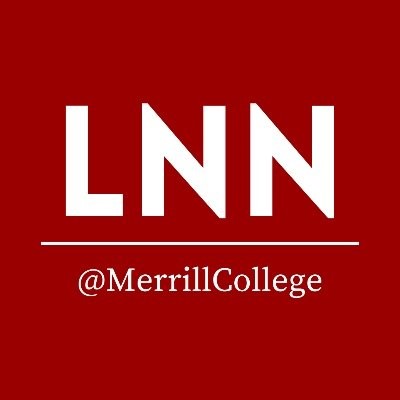Chad King Wilson Sr.
Running for school board in Frederick County
How old will you be on Election Day (Nov. 5)?
41
Are you currently employed? If so, where, and what is your job title?
I am a high school Advanced Placement African American history and alternative education teacher in Montgomery County Public Schools.
What is the highest level of education that you completed, and where did you get that degree?
Master’s degree in special education from the University of Pittsburgh.
Why are you running for the school board?
I am running to provide students with an education that prepares them to impact the world positively. By creating an inclusive and diverse learning environment, we can build a better future for all. I want to prioritize enriching academics and supporting mental health over censoring books or violating students' privacy by creating an environment that celebrates each student's unique abilities.
I want to advocate for the necessary investments to address overcrowding. As the fastest-growing county in Maryland, it's crucial to advocate for funding for building improvements and ensure that our schools have the space to accommodate all students. Transparency is critical in our community engagement so all stakeholders can voice their opinions.
I'm dedicated to supporting educators in delivering quality education to every student by creating an environment that fosters academic achievement while ensuring educators feel respected and valued as experts in their field. Respecting educators' autonomy and facilitating relationship-building to enhance academic achievement is crucial.
I am determined to create an education system in Frederick that allows educators to work and teach in their communities, focusing on student achievement. I aim to attract diverse educators by providing fair compensation, time, and trust.
Special education programs must be fully staffed and equipped to provide high-quality education to students with special needs. We must unlock their potential, support their parents, and build trust in our school communities.
I am running to create an education system that empowers students and educators alike to achieve their full potential.
What makes you a good candidate for the board?
I am a strong candidate for the Board of Education with 18 years of experience as an educator, coach, union leader and activist. I am dedicated to providing inclusive and diverse education for all students, especially in special education programs. I advocate for students, educators, and communities on various levels, addressing issues such as learning environments, special education services and recruitment of diverse educators. My ability to communicate with diverse stakeholders allows me to be an effective educational activist, ensuring that all voices are heard.
In addition to my advocacy work, I have gained valuable negotiation experience. I have served on three impact negotiation teams focused on student and staff safety and protection. This experience has given me a deep understanding of the concerns of the community, parents and educators. I am confident in my ability to navigate complex issues, always keeping the best interests of our students, communities, and educators at the forefront.
As a high school football and track coach, I have had the opportunity to lead, mentor and support students and their families. I have volunteered as a youth coach and mentor in the Frederick community, offering athletic and academic guidance to students. I understand the importance of positive mentorship for children and have always valued this aspect of my work.
Most importantly, I parent two elementary school children in the Frederick County Public Schools system. My perspective as a parent, educator and community member makes me well-suited for the Board of Education member role in Frederick.
What is the most important issue facing your school board and what would you do about it if elected?
One critical issue is special education. I advocate for genuinely inclusive education, which means that students with disabilities should have programs that support their needs inside their home schools. When the school community integrates students with disabilities with appropriate institutional support, it benefits the students and changes attitudes and behaviors in the community. True inclusion also means that we are always looking for the least restrictive environment for our students to gain academic and social success.
I strongly advocate for a fully funded special education program that can cater to the diverse learning needs of all students within Frederick County Public Schools. I will urge the Board of Education to implement programs aligned with a student's Individual Education Plan and that are available in the schools. Special education students deserve the best service, and I am committed to ensuring they receive it.
I will also look into the staffing formula for special education and hire professionals based on the needs of these students. I will listen to our professionals to determine manageable and appropriate caseloads for each program. This policy will ensure that educators can implement Individual Education Plans accurately and with complete support and have adequate time to do so. We will provide professional pay to support staff and teachers to ensure quality education for our most vulnerable students.
Please name a public leader you admire and explain why.
I greatly admire John Lewis for his lifelong dedication to fighting for civil rights and his unwavering commitment to justice and equality. From a young age, he saw the unfairness of segregation, and instead of accepting it, he dedicated his life to making a change. Despite the Brown v. Board of Education ruling, which was supposed to end racial segregation in schools, he realized that it did not change his own schooling experience. He showed bravery and dedication, and fearlessly got into "Good Trouble" during the civil rights movement to do what he felt was right for himself and for future generations. His willingness to endure violence during the marches from Selma to Montgomery, and his continued advocacy for social and legal change until his passing, are truly remarkable to me. He had a profound impact on many like myself.
The Blueprint for Maryland’s Future, passed by the General Assembly in 2021, is a 10-year plan that includes increased education funding to support early childhood education, increased teacher starting pay, college/career-readiness standards for high school graduates, and expanded services to multilingual and impoverished families, among other goals. Please tell us your views on the Blueprint and how it will affect your school district.
I am a big supporter of the Blueprint. I will say that we also have to push our local governments to invest their share. Public education has been consistently underfunded throughout history, and the Blueprint acknowledges that and is a step toward funding public education appropriately. As a rapidly expanding county in Maryland, Frederick must urgently step up and advocate for funding to enhance our education system. The need for more funding from the state to promptly support the implementation of the Blueprint is pressing. Enhancement of the minimum salary of $60,000 for teachers is needed now, along with universal pre-kindergarten, upgrades to special education programs, and, for the fastest-growing county in Maryland, a funded public school system.
Maryland's promise to invest $3.9 billion in public schools is a beacon of hope for us. This investment has the potential to revolutionize our education system and shape a brighter future for our students.
The success of our students and the future of our community are not just at stake, but they depend entirely on the quality of education we provide. This investment will focus on early childhood education, teacher diversity and quality, college and career readiness, providing more resources to needy students, and accountability.
Some school districts nationwide are placing new limits on the use of cellphones in middle and high schools. What do you think should be the policy on student use of cellphones in your district, and why do you support that policy?
During school hours, cellphones should not be used. Studies have shown the negative impact of cellphone use on academic performance, social-emotional development and mental health. Although I recognize the pervasive nature of cellphones in our society, as an educator, I understand the difficulty of maintaining a focused learning environment when cellphones are present. Additionally, safety concerns such as bullying, recording of fights and unauthorized entry into school premises through messaging are important considerations. I believe that school cellphone policies should prioritize safety measures for the well-being of the students.
Are you satisfied with your school district's efforts to ensure the safety of its students? What, if anything, should be done to improve school safety in your district?
I believe we can always do better. We need to have clear and definitive consequences for bullying students who are members of vulnerable populations. We should provide wrap-around services for all students, including those who are struggling with mental health issues or experiencing discrimination.
To make schools safer for vulnerable populations, we must create a welcoming and inclusive environment that values diversity. This involves promoting cultural awareness and sensitivity, implementing anti-bullying policies and providing support services for students struggling with mental health issues or discrimination. Collaboration with community organizations can also offer access to resources such as counseling, mentorship and after-school programs. It's a multi-faceted approach that requires a collective commitment from educators, administrators, students and the broader community. Hiring unarmed security professionals and enforcing clear consequences for bullying are crucial steps toward ensuring a safe school environment for all students.
Do you think there are circumstances when books should be removed from school libraries? If so, what kind of books should be removed, and who should make those decisions?
I oppose book banning and believe a book should only be relocated if it is not on the appropriate grade-level content and subsequently relocated to the appropriate grade level for students. Even then, I oppose the reasoning presented by groups like Moms for Liberty for banning books.
Understanding the reasons behind such an attempt and assessing the potential impact on the students and the community is essential. Engaging in open and respectful dialogue with all parties involved, including school administrators, teachers, parents and students, is also necessary. A group should make those decisions with all stakeholders involved, and that diverse group should make decisions. Advocating for the freedom of expression and the right to access diverse perspectives and ideas is vital to promoting a healthy and inclusive learning environment.
We should all stay informed by joining advocacy groups and participating in relevant public forums which can help raise awareness and support for maintaining a robust and inclusive curriculum. Frederick County has a program that gives parents the right to restrict their children from reading books without infringing on the rights of other parents. That is an essential step in stopping the banning of books. I will be a voice to ensure that the reasoning for banning isn't to silence diversity, inclusion, LGBTQIA+, etc.
Some school districts enact policies allowing transgender and gender nonconforming students to use their preferred pronouns while at the same time not informing those students' parents about that decision. What is your opinion of such policies?
I am committed to implementing and maintaining Policy 443, which aims to create a safe and inclusive environment for all students and safeguard their right to express themselves with their preferred names and pronouns.
Providing a safe, inclusive and welcoming learning environment aligns with my moral values as an educator. Schools should foster a safe environment for all students, physically, emotionally and academically. We should protect students' right to express themselves with their preferred names and pronouns.
Research has shown that the consistent use of a child's affirmed name can reduce suicidal ideation by 29% and suicidal behaviors by 56%. Using preferred names is imperative to help save our students. Resources such as clothing, name badges and celebrating LGBTQIA+ contributions to science, math, medicine, literature, art and technology in the United States can be helpful strategies.
I aim to protect students' rights while at school.


